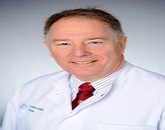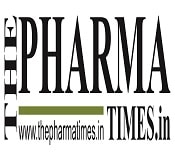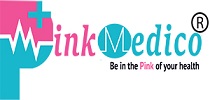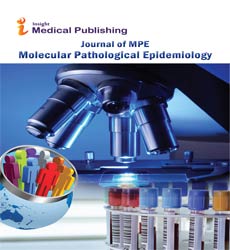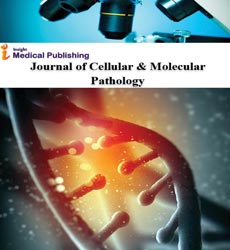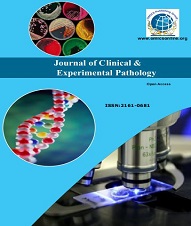Theme: Join global efforts in challenging Infectious Diseases
Euro Pathology Meet 2018
“Diagnosis is not the end, but the beginning of practice.”- Martin H. Fischer
The European Pathology and Infectious Disease Conference is going to be held at Helsinki, Finland during November 26-27, 2018 hosted by ME Conferences. Through the theme "Join global efforts in challenging Infectious Diseases", the conference will explore the advances in Anatomical Pathology, Clinical Pathology, Plant Pathology, etc. This conference could be a remarkable event that carries the mixture of novel and advanced pathological techniques for the diagnosis of emerging infectious diseases. It will provide an international platform to share expertise, foster collaborations across trade and world, and assess rising technologies across the world.
ME Conferences Organizes 1000+ Global Events every year across the Middle East, USA, Europe & Asia with support from 1000 more scientific societies which contains over 50000 reputed scientists, renowned personalities as editorial board members. The conference proceedings will be published in the related journals of the conference, which will be maintained with open access rights
Why to 'ATTEND' European Pathology and Infectious Disease Conference?
A-Achieve broad set of outlook and perception on some of the serious issues in the field of Pathology.
T- Transfer recent issues and proceedings of your latest research.
T- Thought evoking speeches by Doctors, Professors, Ph.D.'s and Young Researchers.
E- Exhibit your Biological, Diagnostic Devices and Services.
N- Nexus development with Academic and Business Executives.
D- Developing highly productive techniques for diagnosis by sharing knowledge.
Rewards of attending Euro Pathology Meet 2018-
- Participants will acquire case histories, inspect images and construct diagnoses.
- Spot and rectify common diagnostic dilemmas.
- Integrate diagnostic, clinical, and pathologic challenges within pathologist/clinician communication and many more!!!!
Who should attend Euro Pathology Meet 2018?
- Pathologists
- Microbiologists
- Pharmacists
- Neurologists
- Therapists
- Vaccine Developers
- Dermatologists
- Epidemiologists
- Gastroenterologists
- Ophthalmologists
- Pediatricians
- Botanical Pathologists
- Cardiologists
- Gynecologists
- Veterinary pathologists
Track 1: Anatomical pathology
Anatomical pathology, the branch of pathology is the diagnosis of disease through the laboratory analysis of bodily fluids and/or tissues. Anatomic pathology is related to the examination, processing, and diagnosis of surgical specimens by a pathological diagnosis trained physician. The technologies and skills traditionally associated with clinical pathology such as molecular diagnostics are required increasingly for anatomical pathology. The cell morphology and staining characteristics is being analysed for the diagnosis. Electron microscopy gives a greater level of resolution. Immunophenotyping is another development, which identifies the specific antigens by staining with monoclonal or polyclonal antibodies. It is one of the two primary certifications offered by the American Board of Pathology (the other is Clinical Pathology (CP)) and one of three primary certifications offered by the American Osteopathic Board of Pathology.
- Surgical pathology
- Oral and maxillofacial pathology
- Cytopathology
- Molecular pathology
- Forensic pathology
- Cytogenetics
- Flow immunophenotyping
- Cervical smear
Track 2: Cytopathology, Histopathology & Immunopathology
In order to work out the cause or the character of sickness, Cytopathology, a diagnostic technique is being employed that examine cells from varied body sites. Pap test was the primary cytopathology test developed that has been wide utilised within the last fifty years for identification and screening of cervical cancer and its precursors. The Pap test is taken into account the foremost economical screening test in medical history. Histopathology is that the study of morbid tissue, as an example, breast lumps or specimens of gut removed from suspected cancer, as well as examination under the microscope. Histopathologists inspect tissues removed from patients within the clinic or throughout an operation. They use a spread of scientific ways to get if a sickness is present and what course of action has to be taken. The tissue is 1st examined with the eye to appear for any visible abnormalities and to pick out items to look at in additional detail. Immunopathology is branch of medicine that deals with immune responses related to sickness. It includes the study of the pathology of an organism, organ system, or sickness with relevancy to the immune system, immunity, and immune responses.
- Immunohistochemistry
- Biopsy
- Exfoliative cytology
- Intervention cytology
- Myocardial infarction
- Oncology
- Frozen section processing
Track 3: Microbial Forensics & Forensic pathology
Microbial Forensics could be a discipline that goes to try to do truthful play to the criminals and terrorists who use biological material to cause harm. The ineligible use of biological agents causes tidy hurt to the people, public health, surroundings, the economies and world peace. Due to these harms and causes, making awareness of capacity in microbial forensics will facilitate us to create perceive that what might have eventuated throughout a bio-threat event, and international collaborations that capture the broader scientific and social control communities area unit probable to fortify the microbial forensic capabilities. Forensic pathologists, or medical experts, are specially trained physicians who examine the bodies of individuals died suddenly, unexpectedly or violently. The forensic specialist is accountable for decisive the cause and manner of death.
- Bioterrorism
- Threat agents
- Microbial characterization
- Clinical microbiology
- Coroners and medical examiners
- Bio-crimes
- Legal frameworks
- Molecular phylogeny
Track 4: Molecular pathology
Molecular pathology is an emerging discipline within pathology which is focused in the study and diagnosis of disease through the examination of molecules within organs, tissues or bodily fluids. Molecular pathology shares some aspects of practice with both anatomic pathology and clinical pathology, molecular biology, biochemistry, proteomics and genetics, and is sometimes considered a "crossover" discipline. It is multi-disciplinary in nature and focuses mainly on the sub-microscopic aspects of disease. Molecular pathology is commonly used in diagnosis of cancer and infectious diseases. Techniques are numerous but include quantitative polymerase chain reaction (qPCR), multiplex PCR, DNA microarray, in situ hybridization, in situ RNA sequencing, DNA sequencing, antibody based immunofluorescence tissue assays, molecular profiling of pathogens, and analysis of bacterial genes for antimicrobial resistance.
- Molecular diagnostics
- Molecular medicine
- Molecular pathological epidemiology
- Precision medicine
- Disease risk management
- Clinical chemistry
- PCR
Track 5: Hematopathology
Hematopathology is the study of diseases and disorders influencing blood cells, their production, and any organs and tissues concerned in hematopoiesis, like bone marrow, the spleen, and thymus. Diagnosis and treatment of diseases like leukaemia and lymphoma typically handle hematopathology; techniques and technologies embody flow cytometry studies and immunohistochemistry. The Hematopathology (HP) Section consists of a various cluster of hematopathologists with varied interests. All of the hematopathologists offer diagnostic analysis of tissue and fluids. Diagnostic material includes bone-marrow biopsies and aspirates, lymph-node biopsies, body fluids, peripheral blood smears, and tissue resections from varied CUMC units. Morphologic analysis and every necessary supportive studies, together with assay, flow cytometry, cytogenetic analysis, and next-generation sequencing (whole exome and targeted panels), are performed in progressive laboratories.Acute myeloid leukaemia
- Epigenetics
- Hodgkin and non-Hodgkin lymphomas
- Flow Cytometry
- Thrombosis
- Homeostasis
- Cutaneous Hematopathology
Track 6: Surgical Pathology
Surgical pathology is that the most vital and long-time area of practice for many anatomical pathologists. Surgical pathology involves gross and microscopic examination of surgical specimens, furthermore as biopsies submitted by surgeons and non-surgeons like general internists, medical subspecialists, dermatologists, and interventional radiologists. The practice of surgical pathology permits for definitive diagnosis of illness in any case wherever tissue is surgically removed from a patient. This is often typically performed by a mix of gross (i.e., macroscopic) and histological (i.e., microscopic) examination of the tissue, and will involve evaluations of molecular properties of the tissue by assay or alternative laboratory tests
- Clinical pathology
- Clinical trials
- Surgical resections
- Bone pathology
- Endocrine pathology
- Soft tissue pathology
- Head and Neck Pathology
- Radiology
- Ophthalmic pathology
- Gynaecologic pathology
- Renal pathology
Track 7: Pulmonary Pathology & Pulmonary Infections
Pulmonary pathology includes a large spectrum of both neoplastic and non-neoplastic diseases that affect the lung. Many of these are a result of the unusual relationship of the lung with the outside world. Every breath that a human takes brings the outside world into the body in the form of infectious agents, organic and inorganic particles, and noxious agents of all types. Pulmonary pathology reported in association with primary biliary cirrhosis includes lymphocytic bronchitis and bronchiolitis, OP, and chronic interstitial pneumonia, including LIP. Rare reports have also appeared describing pulmonary haemorrhage and glomerulonephritis, or microscopic polyangiitis, in individuals with primary biliary cirrhosis.
- Neoplastic diseases
- Non-neoplastic diseases
- Auscultation
- Percussion
- Pathophysiology
- Tuberculosis
- Bronchiectasis
Track 8: Neuropathology & Neuroinfections
The neurological infections are the disorders of the central nervous system. Examples of neurological disorders are Paralysis, Muscle weakness, Pain, Altered level of consciousness etc. The main causes of neurological problems alter, but can cover genetic disorders, congenital abnormalities, infections or environmental health. Neuropathology is the study of disease of nervous system tissue, usually in the form of either small surgical biopsies or whole-body autopsies. Neuropathologists usually work in a department of anatomic pathology, but work closely with the clinical disciplines of neurology, and neurosurgery, which often depend on neuropathology for a diagnosis. Neuropathology also relates to forensic pathology because brain disease or brain injury can be related to cause of death. Neuropathology should not be confused with neuropathy, which refers to disorders of the nerves themselves (usually in the peripheral nervous system). The work of the neuropathologists consists largely of examining biopsy tissue from the brain and spinal cord to aid in diagnosis of disease. The biopsy is usually requested after a mass is detected by radiologic imaging, the imaging in turn driven by presenting signs and symptoms of a patient.
- Dementia
- Cholinergic hypothesis
- Amyloid hypothesis
- Medication
- Neuropsychological tests
- Disease mechanism
- Alzheimer ’s disease
- Encephalitis
- Meningitis
Track 9: Gastrointestinal Pathology & Infections
Gastrointestinal infections are the most frequently encountered infections in primary care caused by virus, bacteria and parasites. The gastrointestinal infections include gastroenteritis or the inflammation of the gastrointestinal tract involving both the stomach and the small intestine. Gastrointestinal infections are caused by a large number of microorganisms like Adenovirus, Campylobacter, Clostridium difficile, Escherichia coli, Rotavirus, Salmonella etc. All the age groups are affected by the gastrointestinal infections. The gastrointestinal infection management is done by rehydration, antiemetic medications, antibiotics, anti-motility agents etc. Born out of increasing awareness of subspecialty gastrointestinal pathology services, increased marketing efforts by gastrointestinal pathology companies and increased patient awareness of laboratory errors, there is an increasing trend toward referral of tissue specimens to surgical pathologists with special interest in gastrointestinal pathology.
- Oral disease
- Oesophageal disease
- Gastric disease
- Intestinal disease
- Accessory digestive gland disease
- Probiotics
- Liver physiology
- Gallbladder hepatology
Track 10: Dermatopathology & Dermatological Infections
Dermatopathology is a joint subspecialty of dermatology and pathology and to a lesser extent of surgical pathology that focuses on the study of cutaneous diseases at a microscopic and molecular level. The dermatological infection is generally defined as the skin infections caused by bacteria fungi and other microorganisms. The infectious disease diagnosis on a molecular level is developing notably over the past decade. The dermatologic disease diagnosis involves many different new and advanced techniques like transcription-mediated amplification, nucleic acid sequence based amplification, polymerase chain reaction, ligase chain reaction etc. The operating cost of these techniques is decreasing with time as well as acquiring the approval of the U.S. Food and Drug Administration and getting easier and more effective to use. In the future, it has been expected that these techniques will be able to provide the fast and accurate diagnosis of infectious diseases in a single clinical visit.
- Cutaneous disease
- Abscess
- Parasitic infestations
- Inflammation
- Nano viricides drugs
- Clinical trials
- Perivascular lymphohistiocytic infiltrate
Track 11: Pediatric Infectious Diseases
Pediatrics is the field of medicine that deals with the medical care of the infants, children, and adolescents. A child suffering from a persistent disease caused by an infectious agent like bacteria, fungi or parasite is called as pediatric infectious disease. All children deserve high-quality medical care. It is crucial to be aware of the treatment guideline of pediatrics so that every child gets the right treatment. There are many prevention ways to protect children from infective diseases.
- Diphtheria
- Respiratory distress syndrome
- Measles
- Congenital infection
- Behavioural Disorder
- Down Syndrome
- Pathology for Pediatric Immunology
Track 12: Anti-Microbial Immunization & Vaccines
The acquired immunity to infectious diseases is expressed by a primarily humoral or a cellular mechanism or more frequently by the combination of two. The living or dead vaccines are used in our body for stimulating the acquired immunity. The many different types of immunizations are developed for the resistance against infectious diseases. The innate immune system recognizes the infections by retrieving the information either from long-term, short-term or working memory and matching it with the information from stimuli to activate adaptive immunity. A vaccine is a biological preparation that provides active acquired immunity to a particular disease. A vaccine typically contains an agent that resembles a disease-causing microorganism and is often made from weakened or killed forms of the microbe, its toxins, or one of its surface proteins.
- Acquired immunity
- Therapeutic use
- Antibiotic reduction strategies
- Polysaccharide vaccines
- Conjugate vaccines
- Passive immunization
- Antibiotic reduction strategies
Track 13: Urinary Tract Infections & STIs
The urinary tract infections are the infections that influence the parts of urinary tract. The most common causative agent of urinary tract infections are Escherichia coli, whereas other bacteria may rarely be the cause. The bacteria which cause urinary tract infections generally enter into the bladder through the urethra. However, the infection may also occur via blood or lymph. The increased immunity of urinary pathogens to quinolones has been reported worldwide and might be the effect of overuse and misuse of quinolones. It is important to differentiate between the sexually transmitted disease and sexually transmitted infections. The STDs are the medical infections that are transmitted through sexual contact. But people, who got infected, don’t always encounter any symptoms or develop their infection into a disease. That’s what the term “STI” is. Approximately all the STIs spread through the contact with infected body fluids such as blood, vaginal fluid or semen. Some bacterial STDs like Chlamydia, Gonorrhoea etc. can be controlled but not cured and if anyone gets the viral STD like HIV/AIDS, Genital herpes etc. they are always going to have it.
- Microbial transmission
- Pathophysiology
- Vaccines
- Contraceptives
- Epidemiological diagnosis
- AIDS
- Syphilis
- Herpes
- Human papillomavirus infection
Track 14: Plant & Veterinary Pathology & Infections
It is the diagnosis of diseases in food-producing animals, companion animals, zoo animals and wildlife. Veterinary medicine is usually carried out with or without professional administration. The professional care is generally performed by Veterinary physicians. The veterinary pathologists also play a key role in the drug discovery and safety as well as scientific research. The veterinary pathologists are eligible to be appointed on many different positions which include the pharmaceutical industry, medical teaching, research, and diagnostic pathology.
- Anatomical pathology
- Clinical pathology
- Veterinary medicine
- Zoonotic diseases
- Histopathology
- Veterinary Microbiology
Track 15: Epidemiology
Epidemiology is the study and analysis of the distribution and determinants of health and disease conditions in defined population. The concerned areas of epidemiological study involve disease causation, transmission, outbreak investigation, disease surveillance, occupational epidemiology, screening, bio-monitoring etc. Epidemiologists employ a range of study designs from the observational to experimental and generally characterized as descriptive, analytic and experimental. In experimental studies, the epidemiologist is the one in control of all the factors entering in a certain case study. Any disease is caused by a chain or web consisting of many component causes. The cause can be differentiated as necessary, sufficient or probabilistic conditions, if a necessary condition can be identified and controlled, the harmful outcome can be avoided.
- Etymology
- Cardiovascular Epidemiology
- Clinical Epidemiology
- Epidemiologic Methods
- Tropical infections
- Food hygiene
- Epidemiological models
Euro Pathology Meet 2018 is a worldwide occasion that integrate an interesting and international blend of specialists, scientists and leaders both from the scholarly world and industry over the globe to trade their insight, experience and research developments to construct a world lab solution for infectious diseases and pathologists meet. This meet empowers a typical stage for the members to talk about their examination with a specific end goal to set up a logical system between the scholarly community and industry prompting Laboratory advances and developments prompts investigate new conceivable outcomes and enhancing the existed openings.
Significance and Scope:
Pathology is a clinical data advantage that is critical to current helpful practice and human administrations. Pathology is used as a piece of the investigation, treatment and organization of an extending extent of clinical conditions. Pathology includes the diagnosis of the hurting impact of sickness on cells and tissues and the track in which the body hopes to secure and repair itself. The pathology and diagnosis is a small segment of pharmaceutical industry. They are meant to be the social protection organization which are provided for the patients and gathering. They strengthen the quality and cost ampleness of social protection. Pathology examinations are an inestimably precious piece of the clinical meeting and procedural strategy with abroad investigations showing that 70-80 for every penny of every single human administration decisions affecting assurance or treatment incorporate a pathology examination. Pathology is critical to the repugnance, early acknowledgment, examination and treatment of an extensive parcel of the fundamental wellsprings of infirmity weight – e.g. tumor, cardiovascular disease and diabetes.
Why Helsinki?
Helsinki, the capital of Finland, is a vibrant seaside of beautiful islands and great green parks. Helsinki’s population of 642,045 makes it the most populous municipality and urban area in Finland. Helsinki is Finland’s most important political, educational, financial, cultural and research center. The location of the Helsinki Airport is the neighboring city of Vantaa, which has frequent service to many destinations in Europe and Asia. Helsinki was the World Design Capital for 2012, the venue for the 1952 Summer Olympics, and the host of the 52nd Eurovision Song Contest.
Conference Highlights:
- Anatomical Pathology
- Cytopathology, Histopathology & Immunopathology
- Microbial Forensics & Forensic pathology
- Molecular Pathology
- Hematopathology
- Surgical Pathology
- Pulmonary Pathology & Pulmonary Infections
- Neuropathology & Neuroinfections
- Gastrointestinal Pathology & Infections
- Dermatopathology & Dermatological Infections
- Pediatric Infectious Diseases
- Anti-Microbial Immunization & Vaccines
- Urinary Tract Infections & STIs
- Plant & Veterinary Pathology & Infections
- Epidemiology
Target Audience:
- Pathologists
- Microbiologists
- Pharmacists
- Neurologists
- Therapists
- Vaccine Developers
- Dermatologists
- Epidemiologists
- Gastroenterologists
- Ophthalmologists
- Pediatricians
- Botanical Pathologists
- Veterinary pathologists
Major Universities in Helsinki:
- Metropolia University of Applied Sciences
- Haaga-Helia University of Applied Sciences
- Arcada University of Applied Sciences
- HUMAK University of Applied Sciences
- Diaconia University of Applied Sciences
- University of Helsinki
Major Universities in Finland:
- University of Eastern Finland
- University of Helsinki
- University of Jyväskylä
- University of Oulu
- University of Tampere
- University of Turku
- Lappeenranta University of Technology
- Tampere University of Technology
- Arcada University of Applied Sciences
- HUMAK University of Applied Sciences
Major Universities in Worldwide:
- Harvard University
- University of Cambridge
- University of Oxford
- Stanford University
- Massachusetts Institute of Technology
- Johns Hopkins University
- Princeton University
- California Institute of Technology
- Yale University
- Imperial College London
- University of Chicago
- University of California, San Diego
- ETH Zurich – Swiss Federal Institute of Technology Zurich
- Cornell University
- Columbia University
- Duke University
- University of British Columbia
- University of Toronto
- University of Edinburgh
- Peking University
- Karolinska Institute
- National University of Singapore
- University of Michigan
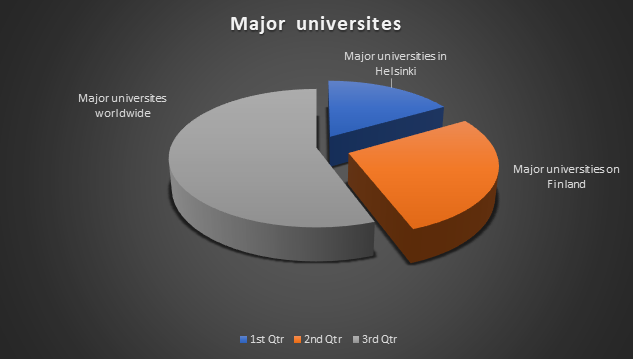
Hospitals in Helsinki:
- Aurora Hospital
- Children's Castle
- Children’s Hospital
- Department of Oncology
- Eye and Ear Hospital
Hospitals in Finland:
- Kymenlaakso Central Hospital, Kotka
- South Karelia Central Hospital, Lappeenranta
- Päijänne Tavastia Central Hospital, Lahti
- Central Hospital of Tavastia, Hämeenlinna
- Satakunta Central Hospital, Pori
- Vaasa Central Hospital, Vaasa
- Southern Ostrobothnia Central Hospital, Seinäjoki
- Central Hospital of Keski-Pohjanmaa, Kokkola
- Central Finland Central Hospital, Jyväskylä
- Mikkeli Central Hospital, Mikkeli
- Central Hospital of Savonlinna, Savonlinna
- North Karelia Central Hospital, Joensuu
Hospitals in Worldwide:
- New York-Presbyterian Hospital
- Ronald Reagan UCLA Medical Center
- University of Michigan Hospital and Health Centers
- UCSF Medical Center
- Massachusetts General Hospital
- Johns Hopkins Hospital
- Cleveland Clinic
- Mayo clinic
- Hospitals of the University of Pennsylvania-Penn Presbyterian
- Cedars-Sinai Medical Center
- Barnes-Jewish Hospital
- Northwestern Memorial Hospital
- UPMC Presbyterian Shadyside
- University of Colorado Hospital
- Thomas Jefferson University Hospitals
- Duke University Hospital
- Mount Sinai Hospital
- NYU Langone Medical Center
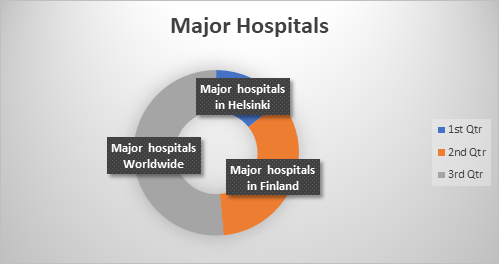
Global Pathology Market:
This report carries out the worldwide computerized pathology market over the Speculated time of 2013 to 2018. The business sector was evaluated at $250.2 million in 2013 and is leaned upon to reach $437 million by the end of 2018, developing at a CAGR of 11.8% from 2013 to 2018. This report overlays the definition, portrayal, and estimate of the computerized pathology market regarding items and applications. In view of items, the computerized pathology market contains stockpiling, investigation, correspondence and scanners. The application business sector is sorted into human and creature pathology. Human pathology is sectioned into biotech organizations and pharmaceuticals, doctor's facilities and reference labs, and preparing and training focuses, while creature pathology is allotted into pharmaceutical and biotechnology organizations, scholarly and contract research associations, and government research foundations.
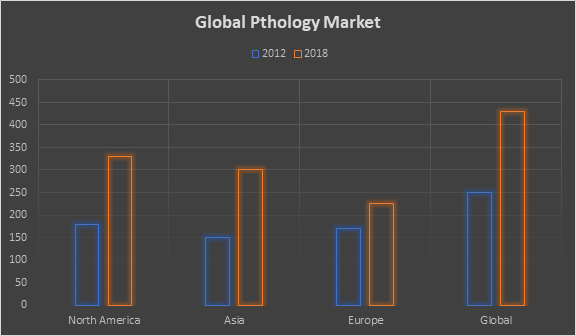
North America exhibited the biggest proposal of the worldwide advanced pathology market, trailed by Europe and Asia. The preponderance of the North American business sector can be attributed to the good reimbursement situation in the U.S. what's more, the utilization of computerized pathology to magnify the nature of tumor detection in Canada. In any case, the Asian business sector is required to encounter the most astounding development in the computerized pathology market. The high development in this locale can be ascribed to the ascent in attention to advanced pathology and its advantages, government wellbeing offices, and community oriented endeavors by players empowering the utilization of computerized pathology to enhance the nature of malignancy finding.
Related Societies/Associations :
Europe:
Federation of infectious disease society of Southern Africa, European society for Pediatric infectious diseases, European molecular biology laboratory, American institute of transplantation, International society of infectious disease, Center for infectious disease research, Pediatric infectious disease society, The royal society of Tropical medicine and Hygiene, European respiratory society, Achieves of pathology and laboratory medicine, International federation of clinical chemistry and laboratory medicine, International association of forensic sciences, European head and neck society
USA:
World association of infectious diseases and immunological disorders, The infectious disease society of America, National foundation of infectious disease, Northeast association of clinical microbiology and infectious diseases, Infectious disease association of California , HIV medicine association, Stuttering association of Mexico, American college of veterinary pathologists, UK college of pathology and laboratory medicine, College of American pathologists, Maryland department of health, Advanced center for treatment, Research education in cancer, Alzheimer’s association
Asia pacific:
Asian society of pediatric infectious disease, Australasian Society for Infectious Diseases, Clinical infectious diseases society, Microbiology society, Asia Pacific Society of Infection control, Asia Pacific Society of Infection control, Asia Pacific Orthopedic association, Pacific Center for Emerging Infectious Diseases Research, Journal of Oral and Maxillofacial pathology, Royal college of pathologists of Australasia.
Middle East:
Pediatric infectious disease society of Philippines, World society for pediatric infectious diseases, Malaysian Society of Infectious disease and Chemotherapy, Pathology department of University of Hong Kong, Japanese society of Immunology, Infection prevention society, Cleveland Clinic
Related Conference:
Annual Conference on Bacterial, Viral and Infectious Diseases, August 06-08, 2018, Abu Dhabi, UAE, International Conference on Clinical Microbiology, Virology and Infectious Diseases, September 10-12, 2018, Bucharest, Romania, International Pediatric Infectious Diseases and Healthcare Conference, November 22-24, 2018, Cape Town, South Africa, 8th International Conference on Bacteriology and Infectious Diseases, September 17-19, 2018, Cape Town, South Africa, 14th World Conference on Infectious Diseases, Prevention and Control, October 15-16, 2018, Abu Dhabi, UAE, 11th World Congress on Virology and Infectious Diseases, May 17-18, 2018, Tokyo, Japan, Annual Conference on Bacterial, Viral and Infectious Diseases, 06-08, 2018, Abu Dhabi, UAE, 4th International Conference on Influenza and Zoonotic Diseases, July 2-3, 2018, Vienna, Austria, 10th Euro-Global Conference on Infectious Diseases, September 27-29, 2018, Rome, Italy, 17th American Pediatrics Healthcare & Infectious Diseases Congress, June 27-28, 2018, Vancouver, Canada, 3rd International Conference on Diagnostic Microbiology and Infectious Diseases, September 24-25, 2018, Montreal, Quebec, Canada, 8th Asia Pacific STD and Infectious Diseases Congress, August 22-23, 2018, Tokyo, Japan, Global Experts Meeting on Infectious Diseases, September 03-04,2018, Tokyo, Japan, 16th Asia Pacific Pathology Congress September 17-18, 2018, Tokyo, Japan, 5th International congress on Infectious Diseases, March 1-2, 2018, Berlin, Germany, 6th International Congress on Bacteriology & Infectious Diseases, May 21-22, 2018, New York, USA, 2nd International Conference on Microbial Pathogenesis & Infectious Diseases, June 25-26, 2018, 9th International Conference on Emerging Infectious Diseases, August 27-28, 2018, Zurich, Switzerland, 4th Annual Congress on Infectious Diseases, August 29-30, 2018, Boston, Massachusetts, US, 3rd Dubai International Conference on Infectious Diseases and Vaccination, May 10 - 12, 2018, Dubai. Middle east infectious diseases conference, 22-23 June, 2018, Istanbul, Turkey, 11th International Symposium On Pneumococci And Pneumococcal Diseases 2018, April 15, 2018 - April 19, 2018, Melbourne , Australia, Australasian Society For Infectious Diseases Annual Scientific Meeting 2018, May 10, 2018 - May 12, 2018, Gold Coast , Australia, 28th European Congress Of Clinical Microbiology And Infectious Diseases 2018, April 21, 2018 - April 24, 2018, Madrid , Spain, International Federation Of Infection Control 2018, April 25, 2018 - April 27, 2018, Krakow , Poland, Global Congress on Bacteriology and Infectious Diseases, June 25-26, 2018, Amsterdam, Netherlands, ASM Clinical Virology Symposium, May 6-9, 2018, West palm beach, Florida, 8th Edition of International Conference on Infectious Diseases, June 07-08, 2018, London, UK, Canadian Conference On HIV/Aids Research 2018, April 26, 2018 - April 29, 2018, Vancouver , Canada, Infectious Diseases In Adults 2018, April 30, 2018 - May 4, 2018, Boston , Ma , United States
Conference Highlights
- Cytopathology, Histopathology & Immunopathology
- Anatomical Pathology
- Neuropathology & Neuroinfections
- Pulmonary Pathology & Pulmonary Infections
- Plant & Veterinary Pathology & Infections
- Gastrointestinal Pathology & Infections
- Epidemiology
- Pediatric Infectious Diseases
- Anti-Microbial Immunization & Vaccines
- Urinary Tract Infections & STIs
- Molecular Pathology
- Microbial Forensics & Forensic pathology
- Hematopathology
- Surgical Pathology
- Dermatopathology & Dermatological Infections
To share your views and research, please click here to register for the Conference.
To Collaborate Scientific Professionals around the World
| Conference Date | November 26-27, 2018 | ||
| Sponsors & Exhibitors |
|
||
| Speaker Opportunity Closed | Day 1 | Day 2 | |
| Poster Opportunity Closed | Click Here to View | ||
Useful Links
Special Issues
All accepted abstracts will be published in respective Our International Journals.
- Journal of Clinical & Experimental Pathology
- Journal of MPE Molecular Pathological Epidemiology
- Journal of Cellular & Molecular Pathology
Abstracts will be provided with Digital Object Identifier by












